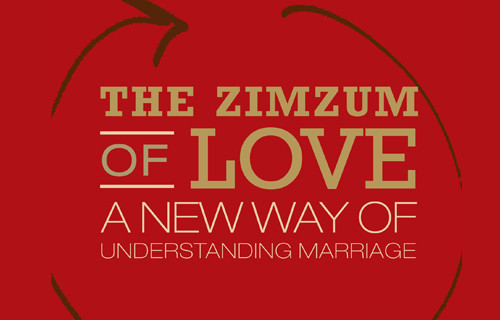For a long time– years, actually– I was in a very similar space to many of you. It’s a place that is beginning to fill with people who are searching for answers and realizing that there aren’t many. So, I used to exist in a sort of limbo where nothing quite makes sense, but somehow it feels the most honest and the most compassionate. It’s an in-between place where your hearts can grieve over a tragedy, but still see the necessity for women to have access to safe reproductive medicine. Being willing to protect the reproductive rights of women, all while believing that abortion is morally wrong. Politically and legally necessary, but still wrong.
The interesting thing about this place is that there is a huge spectrum. No one is there for exactly the same reason, and the gray is constantly shifting. When I first entered that space, I was there because I had my first glimpse at a truly harsh, broken reality.
For most of my life, I believed that almost all abortions were wrong– evil, actually. The only exception– the only one— was in cases where the pregnancy threatened the life of the mother. Only then was it acceptable. Only then. Exceptions for rape and incest weren’t even on my horizon– after all, why punish an innocent baby? It’s not his fault that the father was a rapist. Two wrongs don’t make a right, and the words would come out glib and blithe while I confidently flipped my hair and turned up my nose at women who would murder their own baby.
But then I came staggering, bewildered, into the gray place. Because, at the time, I didn’t have the word rape for what had happened to me. The only thing I knew was that the thought of having my fiancé’s baby terrified me for reasons I couldn’t explain. I could not have his baby. I could not. And I didn’t understand why. But, in those weeks, before I miscarried (most pregnancies fail in the first few weeks), I came to understand that there were probably thousands of girls who were so frightened they could barely breathe or eat or sleep, and I could no longer judge them– because I was one. It took me years to understand that one of the reasons why the thought of carrying my abuser’s baby frightened me beyond reason was that he was also my rapist.
And that’s when I understood that being pro-life and advocating for the rape exception was still wrong. Not because of what I used to believe, no– it’s wrong because it wouldn’t actually be an exception. It’s a totally hollow and empty, utterly useless stance.
Because, if I’d lived in a system where you have to prove you were raped? I wouldn’t have been able to do it. I didn’t even understand that I was raped– and, even if I had, that would have meant going through the excruciating, traumatic process of reporting him. All of that would have had to happen before I could have even called a clinic. And the thought of living in that world . . . it sickens me. And when I first stumbled into the gray place, one of the first things I discovered was that, in 31 states, rapists can sue for custody of the child— and they frequently do this in order to get the woman to drop criminal charges. If she doesn’t take him to trial for raping her, he’ll surrender all legal rights to the baby.
My eyes were forced open, and the reality I’d been denying all my life came crashing in. None of what I’d been taught to believe was as clear-cut, as black-and-white, as it had been given to me. There were reasons– desperate, horrible reasons– for a woman to need to end her pregnancy. I understood that, had felt it in a way that now, when I try to remember what those weeks were like, I can barely breathe and all I want to do is cry.
I wandered deeper into the gray when I started reading the stories of women who had terminated for medical reasons. I had come into this place believing, with all my heart, that it was all right– even merciful– to terminate a pregnancy if it threatened the mother’s life. It never occurred to me how untenable that position was, or what it revealed about what I believed about unborn life. But these stories brought that piece of me into the harsh light: there was a sliver inside of me that already knew that an unborn fetus was not the same thing as a full-grown human being. I had accepted that, in this worse-case scenario, it is morally acceptable to terminate a pregnancy, and I had made that decision because I believed that a fetus did not have the same rights as a mother.
But I read stories, like this one, and my heart broke. Because these mothers didn’t see it that way. They wanted their precious babies, to cradle them in their arms and smell their skin and touch their fuzzy-soft hair. But they gave them up, valuing them as life unlived, because of a diagnoses that meant their child would live in constant, unending pain. And what I’d always believed– that God is in control, and he created that little baby with all its medical problems — that belief was crushed under their grief. And they didn’t decide to terminate their pregnancies because it would eventually result in their own death: they ended them because they loved their baby, and were trying to do the right thing, the best thing, for their child.
So I stepped further into the gray. I decided that I could no longer accept any of what the anti-abortion movement wants to accomplish. They seek to reduce access to contraception– even though that raises the teen pregnancy and abortion rates. They believe that a rape exception would be all right– but living in that world would be heinous and terrifying. They want to ban any abortion after 20 weeks outright, with many laws having no exceptions for any medical reason.
In short, they want what Ireland used to be, or Poland, or El Salvador.
Ireland was a anti-abortionist’s dream.
But, Ireland is being forced to come to terms with the real-life consequences of its policies. Tania McCabe, pregnant with twins, died in 2007, because doctors could not legally terminate her pregnancy. Savita Halappanavar died in 2012 from sepsis, because the doctors had to wait until the fetus’ heart had stopped beating in order to perform the procedure. And, today, lawmakers in Texas, Ohio, Nebraska, North Carolina and others are pursuing the same type of legislation that killed these women.
So, I became politically pro-choice.
But, morally, I couldn’t bring myself to embrace it.
That changed when, after years of struggling, I turned to my faith for answers– and what I found unraveled everything I believed.



